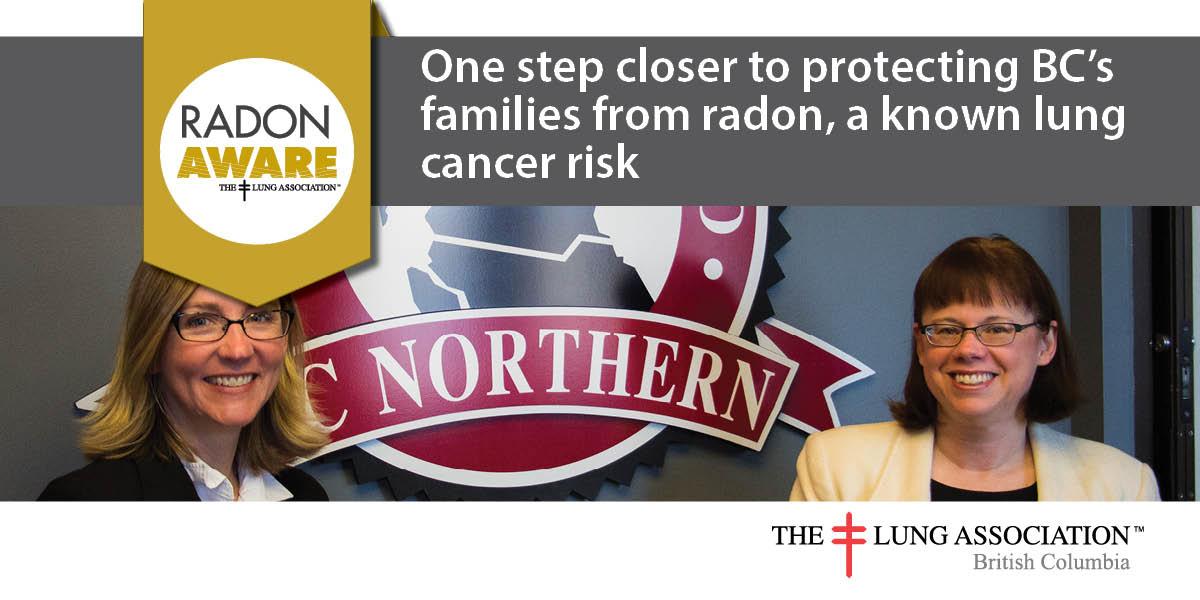Preventing Cancer
"To see Sandra age and then quickly lose her cognitive ability, her speech, her memory, her ability to walk and care for herself ... It was all gone very quickly."
"To me, it's ass-backwards. You have all these millions of dollars of cancer treatment stuff, and then you have a dinky little cupboard [tiny, understaffed office], basically, for [cancer] prevention."
Alan Huggett, Prince George, British Columbia
"It's why the cancer problem is as big today as it was when [President] Nixon declared the war on cancer."
"We haven't won that war because we have been fighting on the wrong front, or at least we haven't been fighting on the front where we could have a major impact."
"Curing cancer gets votes. There are no grateful people saying, 'Thank you for preventing my bladder cancer'."
Jack Siemiatycki, cancer epidemiologist, University of Montreal
 |
| Sandra Huggett and her daughter Lia in 2014: Photo provided by Alan Huggett |
Mr. Huggett of Prince George, B.C. is mourning his wife, stricken with lung cancer, diagnosed at stage-four at a point where the malignancy had already spread to her kidneys and bones. A year after her diagnosis the cancer had invaded her brain and she was in palliative care. She lingered for another few months and died before her 56th birthday, leaving behind her husband and their two young daughters. Sandra Huggett had never been a smoker.
After her shocking diagnosis a test for radon was conducted on their family house. That test revealed that she had been exposed to radon gas, a colourless, odourless gas found naturally throughout Canada. Her home was revealed to have three and a half times the level of radon considered to be safe. Radon, though considered to be the second greatest cause of lung cancer after tobacco, is not on most people's radar; most have never heard of it, have no idea what its exposure can cause.

And its presence and what it can cause is considered to be an avoidable source of cancer. Sandra Huggett's husband Alan and their daughters Lia and Kimberly still live in the family home in Prince George. But it no longer presents a dire health threat. The presence of radon has been for all practical purposes eliminated, and at a fairly modest cost. Retrofits that ensured the radon could no longer penetrate the house and affect the lungs of the remaining three of the Huggett family cost less than $1,500.
Research into cancer and treatments for cancer is a multi-billion dollar industry. Yet work hindering the disease from invading vulnerable humans to begin with appears to be treated as a casual afterthought, with barely five percent of the total expenditure on research and treatment going toward prevention. According to a 2015 federal survey less than three percent of homes have been tested for the presence of the deadly gas.
As well, according to Dr. Siemiatycki, holder of the Guzzo Cancer Research Society chair in environment and cancer, Canadian scientists researching the causes of cancer have dwindled to half of their number involved in that work in 1985. Dr. Siemiatycki points out that the Canadian Institute for Health Research, the major federal medical-science body providing funding, is complacent over providing one to two percent of its cancer budget to prevention.
One day, he believes, scientists will have succeeded in identifying preventable risk factors for all cancers, once the tide turns and sufficient resources are allocated to ensure that outcome. Some experts feel that 40 to 50 percent of malignant cancers are now avoidable, as the result of lifestyle or environmental influence, ranging from sun exposure to obesity.

Dr. Siemiatycki feels that most cancers in all likelihood have both a non-preventable, genetic aspect along with an aspect relating to the individual's behaviour or environmental exposure. Tobacco, recognized as the most powerful carcinogen, relates to behaviour as well as exposure. Yet roughly ten percent of heavy smokers will end up with lung cancer, pointing to a hard-wired genetic propensity for acquiring cancer, working alongside the habit of exposure.
But science must repeatedly prove the theories that arise to convince doubters. In 2015 the journal Science published a paper written by Cristian Tomasetti and Bert Vogelstein, two Johns Hopkins University researchers who hypothesized that the lung is 11 times likelier than the brain to be affected by cancer, related to the frequency at which stem cells divide, leading to resulting DNA mutations. Their conclusion was that a random process is involved relating to the development of tumours adduced to stem-cell divisions.
Two thirds of cancer risks, according to these two researchers, can be attributed to "bad luck". Dr. Tomasetti, a bio-statistician, recommends a sharper focus on early detection to allow patients diagnosed with cancer an enhanced opportunity for survival. Inherited, environmental and random triggers represent the trifecta he and his research partner identified in their study. "This really is a paradigm shift and it has strong implications for research direction", he said.
The wholesale plummeting of smoking rates from the 1960s forward has saved 800,000 lives in the United States alone on an annual basis, accounting for most of the drop in cancer mortality, according to a 2012 U.S. study. A new study involving 300,000 Canadians is currently underway where subjects are to be closely followed over time, with blood tests and questionnaires, in an effort to obtain data on why some people contract cancer and others don't.
Estimates by Cancer Research U.K. suggest that societal obesity reduction has the potential of preventing up to 187,000 cancer cases a year in Britain; that eating more fruit and vegetables would reduce cancer numbers by 15,000 annually; consuming less alcohol 13,000 fewer cancer cases; and more conscientious sun protection would result in 11,000 fewer cases yearly of skin cancers.

Labels: Bioscience, Cancer, Health, Prevention, Research

0 Comments:
Post a Comment
<< Home